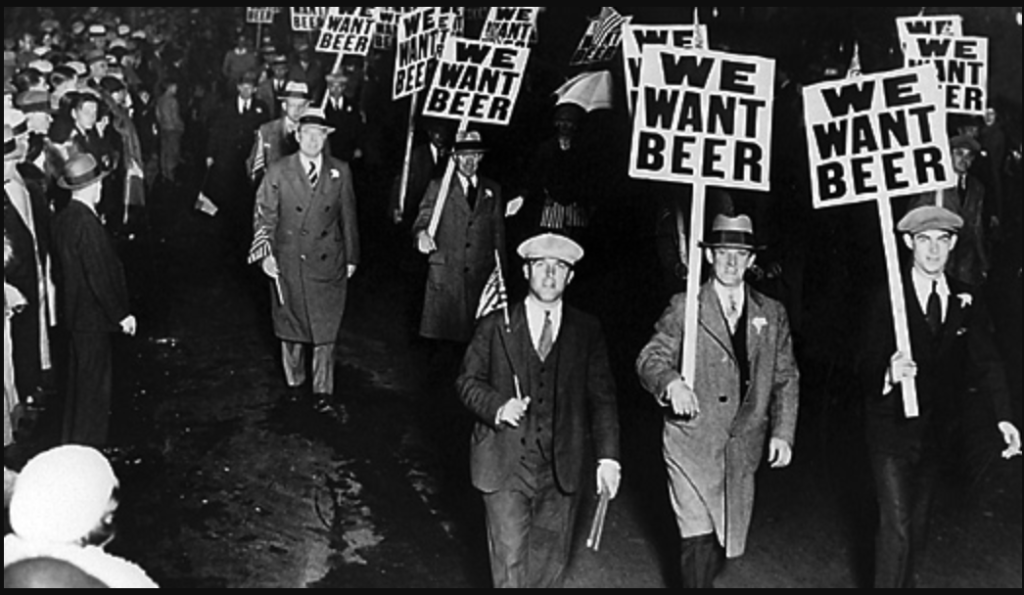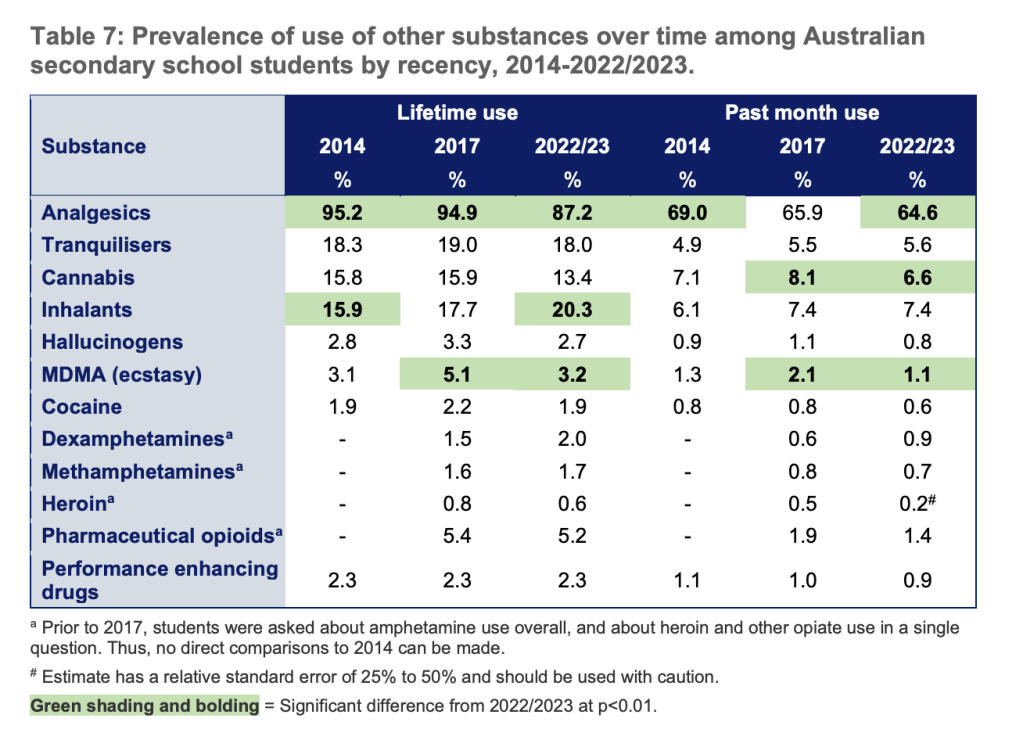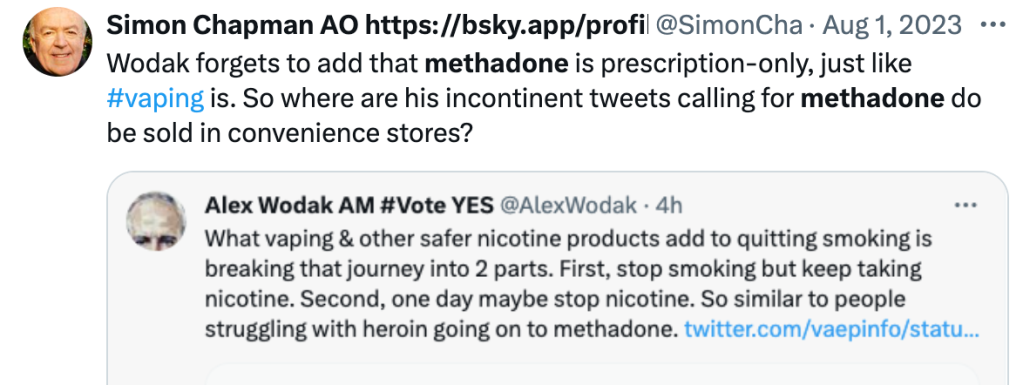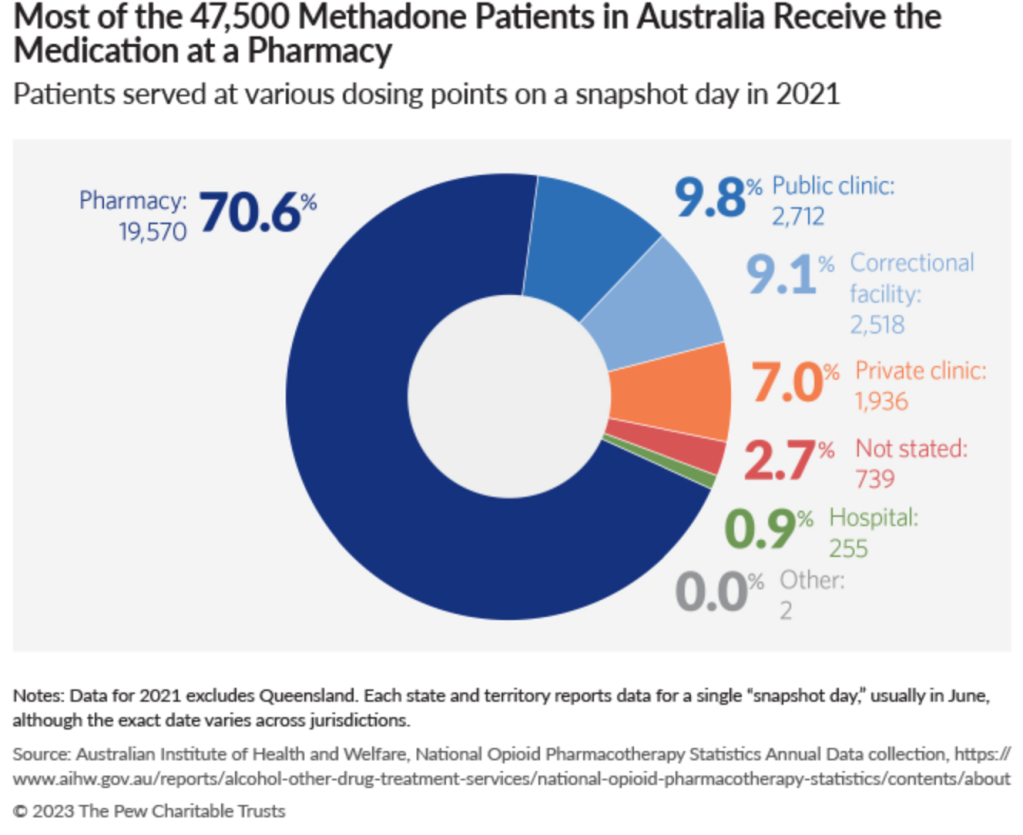
The Australian government with support from all the states and nearly every health and medical agency in the country, has introduced a policy that requires all vapers to have a prescription for these products which can only be dispensed by a registered pharmacist. In 2021/22, 223.1 million prescriptions subsidised by the Pharmaceutical Benefits Scheme (PBS) were filled in a population of some 26 million.
There can be few who do not get a prescription dispensed at least each once a year. In our two-person house, we take seven drugs between us. It’s a routine part of nearly all our lives. Oral contraceptives, statins, blood pressure and diabetes control drugs, strong pain relief and asthma control drugs are among those most commonly used.
If anyone were to tell you that in Australia, antibiotics and the pill are “banned” because they require a prescription, you would look past them knowing you were dealing with someone with some bizarre agenda. Yet this is the routine way in which extremist vaping advocates and their few remaining megaphones in the media speak about current vaping policy.
Nicotine is an addictive drug, and it has always been illegal for vape shops and tobacconists to sell nicotine vaping products in Australia. It’s a law that has been widely ignored by retailers who have pretended that they only sell vapes without nicotine. On repeat, proponents of e-cigarettes drone on that the Government has banned vapes and that this is “prohibition”. However, what happened in 2021 was a loosening of supply, not a ban. Far from ‘prohibition’ the changes were intended to ensure that people who wanted to use vapes to try to quit could legally do so, so long as they had a prescription. Unfortunately, retailers exploited that loosening of restrictions and sales of nicotine vaping products have exploded. To make the law work, the Government has recently stopped people importing vapes, just as entrepreneurs cannot import (eg) for example, Viagra or flog strong pain medications in convenience stores. But they will still be available to anyone who wants to use them for help with quitting or nicotine addiction.
Changes are common to the scheduling of drugs. For example, before February 2018, low-dose codeine, a very useful opiate for pain relief, was available across-the-counter in Australia in a variety of medications. Following accumulating evidence of abuse, it was then rescheduled to prescription-only access. A wastewater evaluation found codeine use dropped 37% across Australia between 2016 and 2019. Many who were using it who did not need to, stopped using it.
Despite the roll-out of the new policy being far from complete, a piece in The Australian this week was headlined Australia’s vape ban has utterly failed. What now? The article forgot to mention the rather elephantine-sized obvious point that vaping retailers have until July 1, 2024 to sell off any remaining stock they have. That’s why we still see vapes on sale in many shops today. This next phase of the plan is to ensure kids no longer walk past vapes shops on their way to school, no longer have fruity pink vapes sold to them in the very same shops selling lollies, fizzy drinks and ice cream. Without this crucial next piece of legislation being passed, retailers will simply continue to flout the law and our prescription model will never get the chance to be implemented as intended.
The same thing happened when plain packs were introduced in 2012: there was a grace period when old stock could be sold off before this finally became illegal. Vape advertising has long been banned and imports on vapes not destined for the pharmacy trade were banned from March 1. After July 1, retailers will risk massively deterrent fines, with prosecutions by the states and the TGA.
It is the situation that has operated for the past three years that has been impossible to enforce. The new reforms being introduced will actually make enforcement possible. Retailers transacting vape sales through shops, market stalls, or on-line need to let customers know how to contact them to get vapes. These routes will now fully expose those sellers who can no longer hide behind the cover of non-nicotine vapes. If a teenage kid can work out how to get vapes, those experienced in investigating illegal sales of any sort will find it child’s play. Many retailers will see it as simply too risky.
The Australian article also failed to mention why the policy failed so badly under the Morrison government when its prototype was first introduced by former LNP health minister Greg Hunt. A back bench revolt lead by Matt Canavan and Hollie Hughes, aided by luminaries like Barnaby Joyce, Eric Abetz, Tim Wilson and James Paterson, gutted the Hunt policy by leaving the prescription access pillar intact, but overturning the import bans. This was like entering a three-legged horse in the Melbourne Cup. But all this is never mentioned by those dancing around the corpse of the Hunt reforms.
Mark Butler’s policy has reinstated the twin pillars of the Hunt policy and extended them to include non-nicotine vaping products (because these falsely-labelled items were being used as a legal defence by retailers (“the pack said no nicotine, m’lud. How was I as an honest shopkeeper trying put a roof over my family’s head, supposed to know this was incorrect?”) It “bans” vapes in the same way that the government “bans” all prescription drugs.
“Everyone knows” prohibition doesn’t work
It is a commonplace for people, including some wet-behind-the-ears ‘experts’, to solemnly declare that prohibition never works. But such claims rarely specify what the test of failure actually means. Is random breath testing, introduced in Australia in 1976, a failure because every day people are still charged with being over the limit? Or is zero drink driving the only meaningful test of its importance? All governments across the last 48 years seem to agree that zero cases would be a preposterous standard against which to assess impact, knowing that there have been huge reductions in alcohol-caused driving fatalities in that time. Illicit drugs of course are still procurable in all countries in which they are illegal. Tiny percentages of Australian school students reported using opiates and methamphetamine in the last month of the most recent national survey (see table). But 14.5% (nearly 1 in 7) 14-17 year olds have vaped in the past month

I asked my 14-year old granddaughter if she knew where her friends buy vapes. She did. I know she would be clueless about how to buy heroin, cocaine or meth. By contrast, for the last few years vapes have been sold cheaply and openly in every suburb and country town. So if a small number of clandestine sellers find ways to keep selling vapes after July 1, will this mean the policy has “utterly failed”, as the Australian screamed?
Alcohol and drugs research maven Emeritus Professor Wayne Hall from the University of Queensland commenced his 2010 review in Addiction of the lessons to be learned from alcohol prohibition in the USA with “ ‘Everyone knows’ that national alcohol prohibition in the United States between 1920 and 1933 was a quixotic and failed social experiment”.
In his erudite myth-busting review, Hall examined this factoid (unreliable information that is reported and repeated so often that it becomes accepted as fact) and its implications for policy debates about “bans” on alcohol. He concluded “It is incorrect to claim that the US experience of National Prohibition indicates that prohibition as a means of regulating alcohol is always doomed to failure. Subsequent experience shows that partial prohibitions can produce substantial public health benefits at an acceptable social cost, in the absence of substantial enforcement.”
His review and this piece suggest that prohibition was associated with a number of positive social and economic changes while it lasted, and that the almost universally accepted “fact” that it caused widespread growth in the black market for alcohol and in associated crime and corruption may in fact have been phenomena only documented for a small number of cities.
Beverage alcohol can be quite easily made, as the popularity of home brewing and wine-making attests. But the manufacturing of vaping equipment is something very few people would be capable of doing, particularly in commercial quantities. Shutting down retail access outside of pharmacies is highly unlikely to see burgeoning hobbyist manufacturing networks set up. Where would they acquire the oceans of liquid nicotine, for a start?
Dr Alex Wodak, an unswerving advocate for open access to vaping products, argued recently that “Vaping is to smoking what methadone is to street heroin.” Correct. But curiously Wodak failed to note in his comment that methadone is only available via special prescription authority, dispensed at some pharmacies and clinics.

In 2021, 70.6% of Australia’s 47,500 methadone patients received their methadone at a pharmacist. Some keep obtaining it illegally, but there are no sensible calls for this system to be axed, let alone for methadone to be sold in corner shops.

In fact Wodak says he has never advocated that methadone should be available to whoever wants to buy it from any retailer wanting to sell it, in just the way that cigarettes can be sold and in the way he believes vapes should also be sold. He believes that drugs like opiates and “all prescribed drugs” which are acutely toxic and capable of causing serious health consequences quickly including death, should appropriately be restricted to medical oversight.

But addiction to nicotine causes the death of over 8 million people a year because without nicotine in tobacco, very few would ever smoke.
In Australia and elsewhere governments ban many things: child pornography, semi-automatic firearms, mace and pepper sprays, flick knives, dynamite, DDT, asbestos, often accompanied by the wailing of aggrieved libertarian consumers who want to “choose” to have these things. Consumer protection legislation has banned and regulated 1000s of both acute and chronically dangerous goods, chemicals and set standards for emissions etc. Many of these exposures do not cause disease quickly, but over long periods of time. Wodak’s rationalisation that only agents capable of causing rapid toxic effects should be medically regulated is blind to the massive dominance of chronic disease in modern health problems.
If cigarettes were invented tomorrow, no government would allow them to be sold with the knowledge we have today of their health effects. So what should this teach us about vaping? That we should learn nothing from the disaster of allowing tobacco to be sold as freely as it is?
A 2021 statement by 15 past presidents of the Society for Research into Nicotine and Tobacco declared “High-quality clinical and epidemiological data on vaping’s health effects are relatively sparse. There are no data on long-term health effects, reflecting the relative novelty of vaping and the rapid evolution of vaping products. Determining even short-term health effects in adults is difficult because most adult vapers are former or current smokers.”
We do not know the net health effects of vaping and will not know them for decades, just as occurred with the slow emergence of knowledge of the health effects of smoking and breathing in asbestos particles.
Mark Butler’s policy on vaping will again stamp Australian governments as being in the front row of the grid of nations which have dared to stand up to Big Tobacco. Every major tobacco company in the world has invested heavily in vapes while leaving its feet firmly on the throttle of promoting smoking as well. All are implacably opposed to Mark Butler’s policy. That’s all we need to know.
Other blogs in this series
Vaping theology: 1 The Cancer Council Australia takes huge donations from cigarette retailers. WordPress 30 Jul, 2020
Vaping theology: 2 Tobacco control advocates help Big Tobacco. WordPress 12 Aug, 2020
Vaping theology: 3 Australia’s prescribed vaping model “privileges” Big Tobacco WordPress Feb 15, 2020
Vaping theology: 4 Many in tobacco control do not support open access to vapes because they are just protecting their jobs. WordPress 27 Feb 2021
Vaping theology: 5 I take money from China and Bloomberg to conduct bogus studies. WordPress 6 Mar, 2021
Vaping theology: 6 There’s nicotine in potatoes and tomatoes so should we restrict or ban them too? WordPress 9 Mar, 2021
Vaping theology: 7 Vaping prohibitionists have been punished, hurt, suffered and damaged by Big Tobacco WordPress 2 Jun, 2021
Vaping theology: 8 I hide behind troll account. WordPress 29 Jun, 2021
Vaping theology: 9 “Won’t somebody please think of the children”. WordPress 6 Sep, 2021
Vaping theology: 10: Almost all young people who vape regularly are already smokers before they tried vaping. WordPress 10 Sep, 2021
Vaping theology: 11 The sky is about to fall in as nicotine vaping starts to require a prescription in Australia. WordPress 28 Sep, 2021
Vaping theology: 12 Nicotine is not very addictive WordPress 3 Jan 2022
Vaping theology 13: Kids who try vaping and then start smoking,would have started smoking regardless. WordPress 20 Jan, 2023
Vaping theology 14: Policies that strictly regulate vaping will drive huge
numbers of vapers back to smoking, causing many deaths. WordPress 13 Feb, 2023
Vaping theology 15: The government’s prescription vape access scheme has failed, so let’s regulate and reward illegal sellers for what they’ve been doing. WordPress 27 Mar 2023
Vaping theology 16: “Humans are not rats, so everybody calm down about nicotine being harmful to teenage brains”. WordPress 13 Jul, 2023
Vaping theology 17: “Vaping advocates need to be civil, polite and respectful” … oh wait. WordPress 3 Oct, 2023
Vaping theology 18: Vaping is a fatally disruptive “Kodak moment” for smoking. WordPress Oct 30, 2023
Vaping theology 19: Vaping explosions are rare and those who mention them are hypocrites. WordPress 17 Nov, 2023
Vaping theology 20 : Today’s smokers are hard core nicotine dependent who’ve tried everything and failed – so they need vapes. WordPress 14 Dec, 2023
Vaping theology 21: Australia’s prescription vapes policy failed and saw rises in underage vaping and smoking. WordPress 10 Jan, 2024
Vaping theology 22: “Prohibition has never worked at any point for any other illicit substance”. WordPress 17 Mar 2024
Vaping theology 23: “84% of the Australian public are opposed to the way the government will regulate vapes” WordPress 2 Apr, 2024
